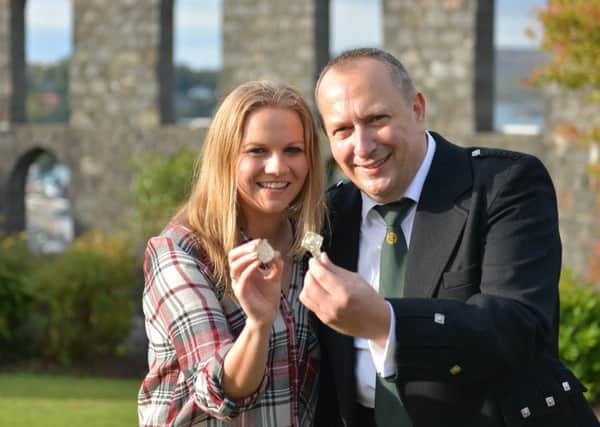Fifth time lucky for gold medal winner at Royal National Mòd


Donald-Iain Brown, 46, who has been runner-up in the top Gaelic singing competition for the past four years, said: “I am relieved to have finally won it, I decided that Oban was the last one I would go for.”
Mr Brown, who works for the BBC in Glasgow as head of talent and editorial opportunities, is originally from Crossapol on the isle of Tiree.
Advertisement
Hide AdAdvertisement
Hide AdHe said: “I won the silver medal in Oban as a boy and I grew up in a Gaelic family, we all sing – myself and my three brothers and sister. Campbell Brown, of [the band] Gunna Sound is my brother.”
There were only three competitors in the Men’s Gold Medal competition this year but Mr Brown encouraged would-be future entrants to “go for it”.
He said he had been practising every day and admitted it was hard work, but added: “You are learning songs, so that is a good thing, and if you are serious about it you learn about the history of the songs as well.”
The ladies’ gold medal was won by Catriona MacNeil.
Miss MacNeil, 28, who is from Glasgow, said this was only the second time she had tried for the gold and added that she had not even reached the final last year.
Miss MacNeil, who is a Phd distance learning student of Skye-based Gaelic college Sabhal Mòr Ostaig, studying Gaelic media, said she was “very surprised” to win the medal, out of a field of eight.
Her family are from the isle of Barra and Miss MacNeil said she was brought up to value Gaelic culture and music.
Although there are not many singers in her family there are musical links. Miss MacNeil, who also plays the pipes, is the daughter of Donnie MacNeil, the drummer with famous Gaelic group The Vatersay Boys.
Yesterday a group from Haselau, a small village 32 kilometres from Hamburg in North Germany, were amongst those competing in the rural choirs section.
Advertisement
Hide AdAdvertisement
Hide AdConductor Michael Horn-Antoni formed Kantorei Haselau (Haselau Choir) 23 years ago and it originally sung in Platt – flat German.
The 25-strong choir, whose youngest member is 19 while the oldest is 81, now sings in Danish, French, Swedish, English and Gaelic. It was choir member Thomas Herion’s love of Oban, where he has a sailing boat, that led them to enter.